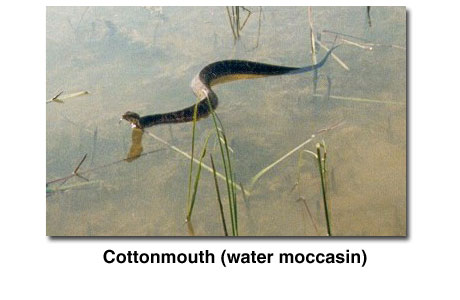Jump to
Cottonmouth (Water Moccasin)

Source: U.S. National Park Service
The cottonmouth, also called a water moccasin, is a poisonous (venomous) snake found in southeastern and south central North America. They leave one, two, or three puncture marks on the skin, but you won't always see any marks.
©2011-2025 Healthwise, Incorporated
The content above contains general health information provided by Healthwise, Incorporated, and reviewed by its medical experts. This content should not replace the advice of your healthcare provider. Not all treatments or services described are offered as services by us. For recommended treatments, please consult your healthcare provider.
